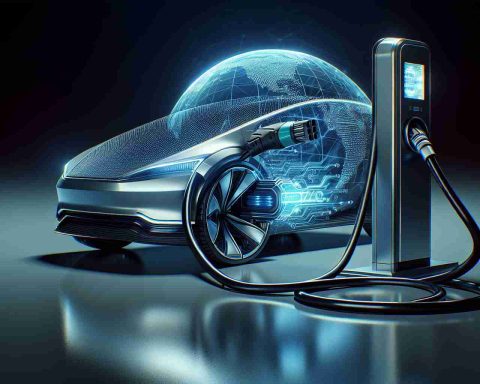Nauru is making strides towards a sustainable energy future with its inaugural electric bus launched in Yaren District. This significant development signals the nation’s commitment to cutting emissions and fostering renewable energy solutions. The government aims to lessen its dependence on imported fossil fuels, enhance energy efficiency, and align with long-term climate objectives outlined in the National Energy Roadmap.
At the launch event, government officials and stakeholders from UNDP gathered to celebrate this remarkable achievement. The Minister of Nauru expressed pride in the initiative, emphasizing that the electric bus and charging station under the SMARTEN program are vital steps towards achieving a cleaner public transport system and a resilient energy future.
The Deputy Resident Representative from UNDP highlighted the SMARTEN project’s crucial contribution to Nauru’s energy evolution, marking it as a key advancement towards low-carbon development and renewable initiatives. Funded by the Global Environment Facility, this project aims to boost Nauru’s energy resilience through the integration of renewable technologies and improved energy practices.
The Assistant Secretary for DCCNR elaborated on the broader implications of the e-bus launch, indicating that this is merely the first step in a series of clean energy initiatives that will advance Nauru’s sustainability goals. The event underscores the power of collaboration and innovation in addressing climate issues and sets a precedent for future endeavors. With a message on the bus urging Nauruans to save today for a sustainable tomorrow, the country’s path to greener energy is clearer than ever.
Nauru’s Electric Bus Initiative: Paving the Way for a Sustainable Future
Nauru is embarking on a transformative journey toward sustainability through the introduction of its first electric bus, launched in the capital, Yaren District. This groundbreaking initiative not only represents a shift towards cleaner public transportation but also underscores the nation’s broader commitment to reducing carbon emissions and embracing renewable energy sources.
Overview of Nauru’s Energy Goals
The launch of the electric bus aligns with Nauru’s long-term climate objectives, which are meticulously outlined in the National Energy Roadmap. This plan seeks to significantly reduce the nation’s reliance on imported fossil fuels, elevate energy efficiency, and promote sustainability through innovative energy solutions.
Key Features of the Electric Bus
– Renewable Power Source: The electric bus operates on energy derived from renewable sources, drastically reducing the carbon footprint associated with traditional diesel buses.
– Charging Infrastructure: The introduction includes a dedicated charging station as part of the SMARTEN program, ensuring that the bus can operate efficiently while promoting the use of renewable energy.
– Public Awareness Campaign: The bus features messaging that encourages citizens to contribute to sustainability efforts, reinforcing the message of saving today for a sustainable tomorrow.
Advantages of Electric Buses
1. Reduction in Emissions: Electric buses produce zero tailpipe emissions, helping to combat air pollution and climate change.
2. Cost Efficiency: Over time, operating electric buses can save money on fuel and maintenance compared to traditional fossil fuel-powered vehicles.
3. Energy Independence: By utilizing local renewable energy resources, Nauru can enhance its energy security and reduce import costs.
Funding and Support
The electric bus project is a significant part of the SMARTEN initiative, funded by the Global Environment Facility. This program is designed to bolster Nauru’s energy resilience by integrating renewable technologies and promoting better energy practices across the nation. The collaboration between the government of Nauru and organizations like UNDP highlights the importance of partnerships in achieving sustainable development goals.
Future Prospects
The launch event in Yaren symbolizes just the beginning of Nauru’s clean energy journey. Officials have indicated that this initiative will be followed by further projects aimed at amplifying the island nation’s sustainability achievements. As the e-bus initiative gains momentum, it is expected to inspire similar efforts in the region and reinforce the vital role of innovating towards a greener future.
Conclusion
Nauru’s commitment to launching its inaugural electric bus marks a significant step in the nation’s pursuit of sustainability and renewable energy solutions. This initiative not only positions Nauru as a leader in clean energy within the Pacific region but also serves as a model for other nations looking to transition to greener transportation methods.
For more information on Nauru’s sustainability efforts and initiatives, visit the government’s official site Nauru Government.



















